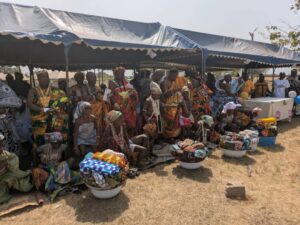Last week, we all awoke to a sad incident involving a journalist of Citi FM, Caleb Kudah, and elements of our national security apparatus.
Caleb, they insisted had invaded the premises and acted unprofessionally, ignoring a ‘No Photograph’ sign and taking photographs without permission as is the norm in such environments.
Reactionary
The contingent of security service operatives, who chased his colleague, Zoe Abu-Baidoo, to the premises of Citi FM also ignored protocols that required that they talk to his chiefs and resolve the matter.
Unassailable reports indicate that they molested him.
Public response
Since then, responses from the public and civil society have been one of anger, not against the institution, but largely against the government because governments in our part of world have been known to own such institutions rather than the people owning it.
The Media Foundation of West Africa, Ghana Journalists Association, owners of media organisations, political communicators and social media bloggers without station have all been discussing the invasion and over operation.
It appears to these stakeholders that certain cultures that characterised the modus operandi of our security agencies from the PNDC days are still around, despite our professed transition to a democratic state.
But the matter becomes more intriguing when a government that civil, the argument goes, is caught husbanding such traits within a security apparatus it oversees.
Institutional responsibility
The unfortunate aspect of the incident is that not long ago, when we had to run a bye-election in Ayawaso West Wuogon, we encountered such a situation and the government had to set up a Committee of Inquiry.
The resultant sittings and Report were yet to be implemented when we were confronted with this embarrassing repeat, creating the impression that our institutions of national security are still years away in reforming themselves to conform to twenty first century security tenets and nuances.
Particularly, when such incidents give opportunity to political opponents to ignore the real issues of objectivity and responsibility or professionalism and national security diktats, the conversation turns murkier and propaganda-laden, rather than constructive and positive.
Partnerships that foster development
Journalists and security agency operatives have, since the Kufuor administration, moved away from the wars of attrition between the two since the frosty PNDC days.
And the situation has so improved that it was normal for journalists to send questionnaires to the DPR of the Ghana Armed Forces and receive official responses in a good-natured manner.
That should be the fresh culture. Additionally, we have today the independent media, for instance, also moving away from the stormy past into charity and development as civil society partners.
Growing up
At this point, as government probably sets up another Commission, after the Ayawaso West one, we believe the issue we have on our hands is about entrusting the security agencies into the hands of visionaries in the profession who we can trust to re-orient the attitudes and modus operandi of the institutions of state security.
Balanced professionals will first look at the partnership and collaborative angles of cooperation, instead of seeing journalists as rodents who come to infest their work environment and culture.
But the journalist also ought to respect the environment of other actors, while constructing relationships that one could rely on to be trusted with information into the future.
That is why we believe the journalists can learn from their relations with the Ghana Armed Forces, the Police Service and Ghana Prisons Service, for example.
Responsibility
We can move the conversation forward, in our opinion, when we focus on responsibility and professionalism as yardstick in measuring the extent of error that led to the clash between the two.
It is important, however, that in avoiding a future clash, we get back to paths of collaboration, so that in looking for information, for instance, we do not unnecessarily pull-down barriers that we may conveniently scale in friendlier times.








